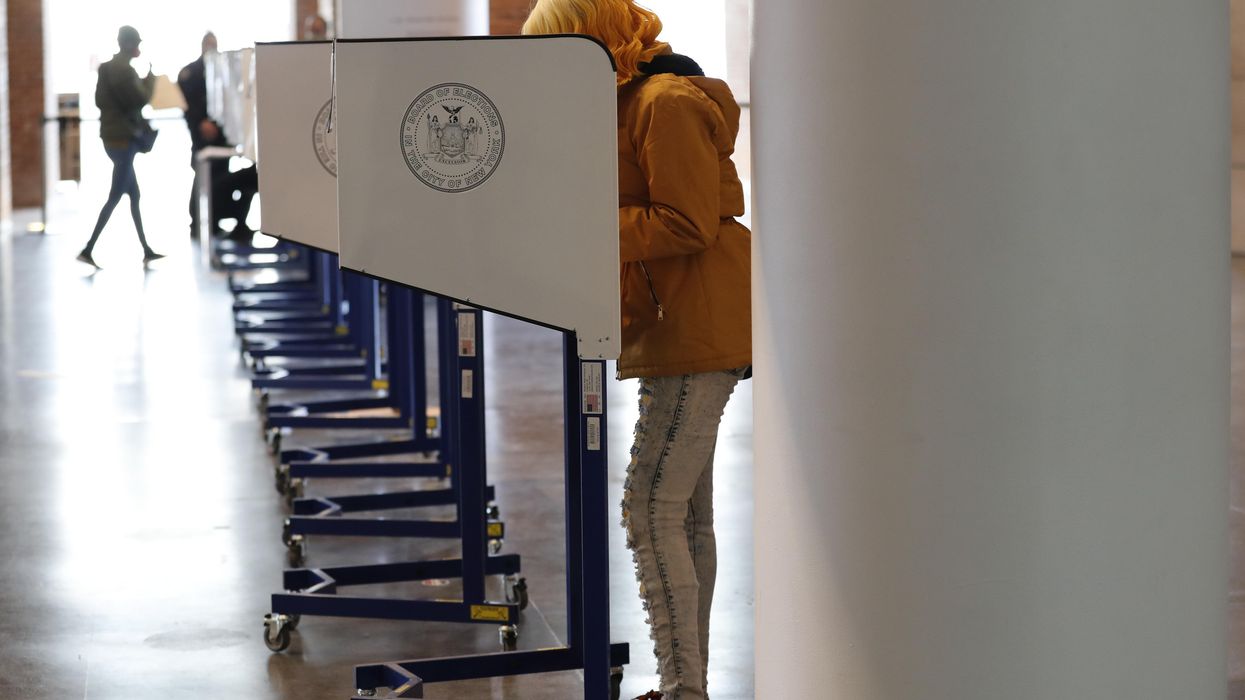As New York City prepares to use ranked-choice voting for the first time next week, momentum for the reform continues to build in other parts of the country.
The country's most populous city will use ranked-choice voting in at least four special elections for city council in the coming months, but the real test will be the hotly contested mayoral primaries in June.
Outside of the Big Apple, more than two dozen states have active campaigns advocating for ranked-choice elections. Following successes in Alaska and six cities across the country in 2020, more jurisdictions than ever before are considering making the switch to RCV.
In fact, campaigns were just announced in two more states. Better Ballot South Carolina kicked off this week, and Better Ballot Alabama will officially start in mid-February. Both are being advised by the national nonprofit Rank the Vote, which launched last year and has pro-RCV affiliates in 18 other states.
"Our mission is really to help people learn how to effectively organize themselves to educate other folks in their state about ranked-choice voting and build a community of people that are excited about the reform," said Nathan Lockwood, managing director of Rank the Vote.
Under this alternative voting system, voters rank candidates in order of preference. In the case that no candidate receives majority support, the election goes into an instant runoff in which the candidate with the least votes is eliminated and that person's support is redistributed to voters' second choices. This continues until one candidate crosses the 50 percent threshold.
Supporters of RCV say the voting reform will deter negative campaigning and bolster more consensus-driven politics, while also boosting the election prospects of women and people of color. Opponents argue the system is confusing and doesn't necessarily lead to better representation.
Ahead of RCV's debut in New York, members of the City Council's Black, Latino and Asian Caucus and other community organizations sued to delay its implementation, arguing city officials didn't have enough time to educate voters about the new system. But a state judge ruled last month the city could move forward with ranked-choice voting because a delay would disenfranchise military voters.
Rob Richie, CEO of FairVote, one of the leading ranked-choice voting advocacy organizations, said the voter education campaign in New York has been really robust, both among RCV advocates and the city government. It will likely take a few weeks for the results of NYC's upcoming elections to finalize, though, due to the state's process for counting absentee ballots.
"That's always nerve-wracking when you're trying to introduce a new system," Richie said. "But I am impressed by the local folks on the ground." He added that FairVote is partnering with Common Cause's New York chapter to conduct exit surveys on voters' experiences using ranked-choice voting.
RCV will premier in another state in 2022: Alaska. In last year's election, a narrow majority of voters approved a sweeping democracy reform ballot measure that included adopting RCV for all statewide elections — making Alaska the second state to do so after Maine. Massachusetts had a similar ballot measure last year, but it failed to garner enough support.
Now, following the 2020 election and with state legislative sessions starting, advocates are gearing up to push for ranked-choice voting in several other states.
In Utah, a Republican lawmaker is sponsoring legislation to adopt RCV for primary elections with more than two candidates. In Vermont, former Gov. Howard Dean is leading a campaign to bring the voting reform to Burlington, the state's largest city. And in Austin, Texas, voters may get the chance to decide whether RCV should be used for future mayoral and city council elections.
And on the federal level, advocates are hoping to get more momentum behind legislation that would promote the use of ranked-choice voting, such as the sweeping democracy reform bill known as HR 1. Another bill, dubbed the Fair Representation Act, would go further by requiring all elections for the House of Representatives to use RCV. That bill, introduced in 2019 but not yet in this Congress, would also establish multi-member districts in each state.
Richie said he thinks the Jan. 6 attack on the Capitol is evidence of the country's deep polarization and will spur more conversations about voting reform this year.
"I think it's really got people thinking about why representatives act the way they do," he said. "And a lot of that is baked into the current ways we vote and the current ways we pick winners and the incentives that are created by that."




















